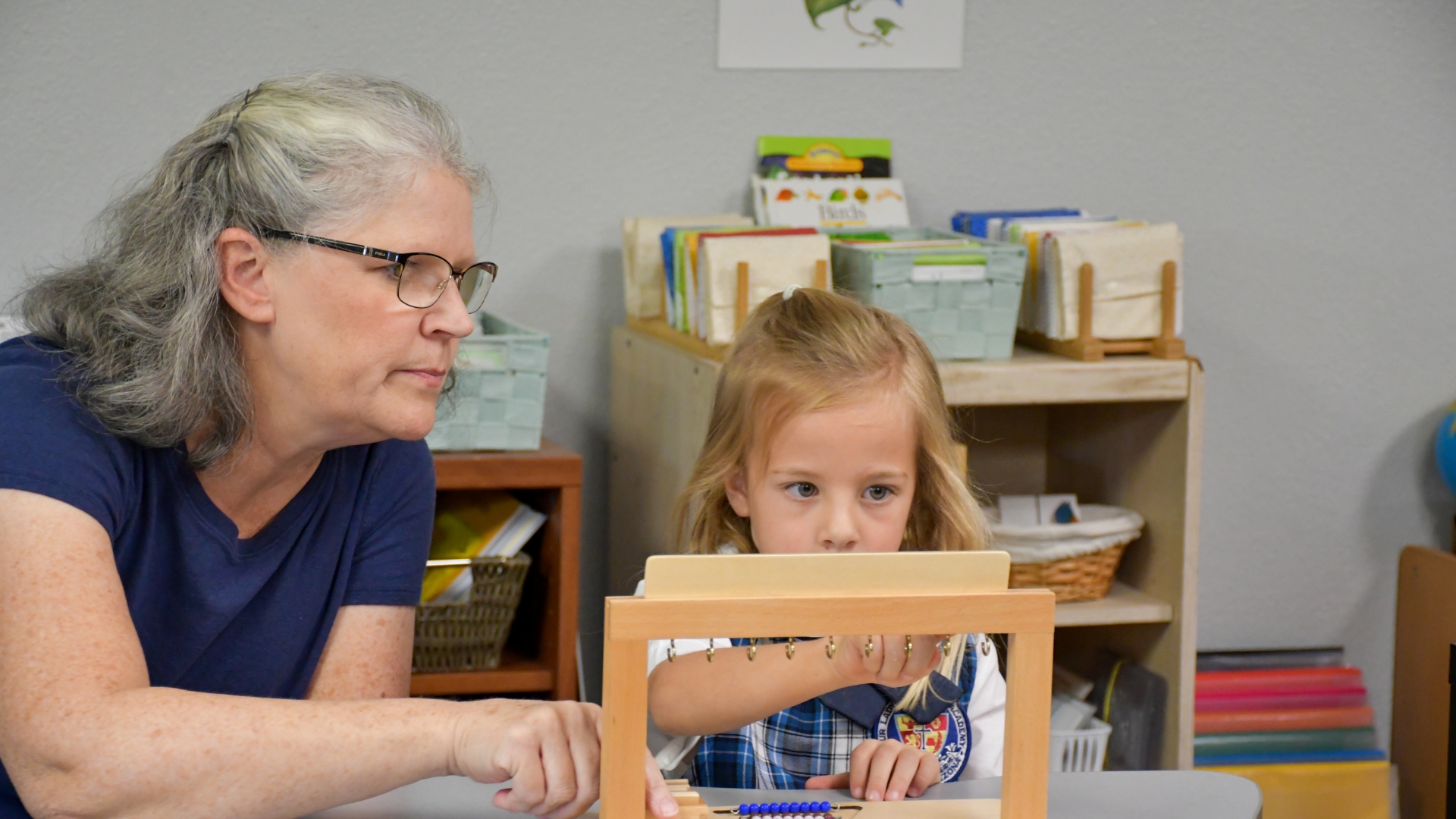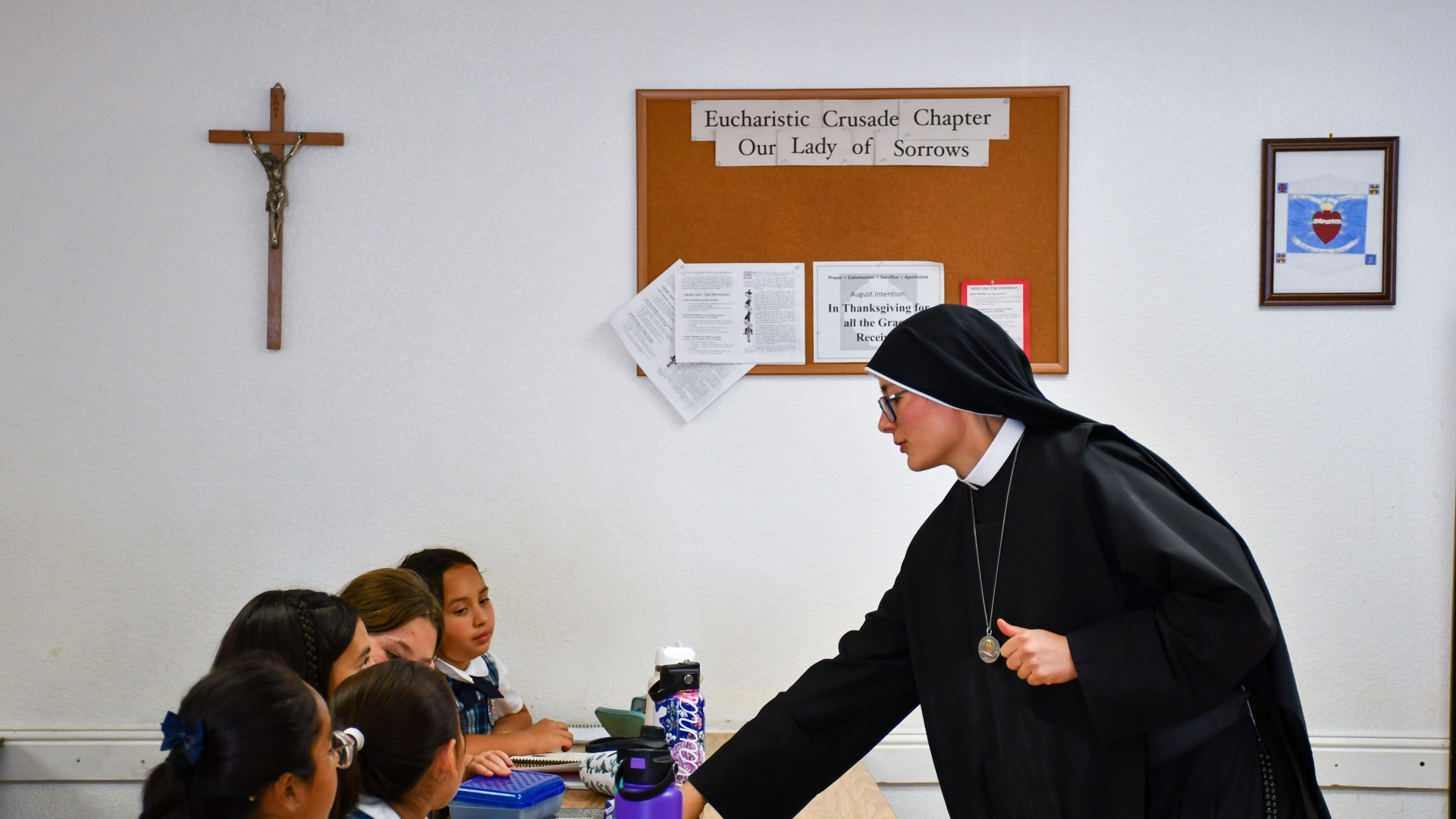Academics

The schools of the Society of St. Pius X are committed to providing children with a safe, healthy environment in which they can learn and grow into strong and dedicated Catholics of tomorrow.
Our Lady of Sorrows is in a unique position to accomplish this mission in our academy buildings in the heart of Phoenix, Arizona.
Spiritual Formation
Our school finds in the traditional liturgy of the Church the privileged source of supernatural life and of solid piety. For this reason the Holy Sacrifice of the Mass is offered in the Tridentine Rite. Pupils have a regularly scheduled time for the sacrament of Penance. In addition, other devotions such as the Rosary and Benediction will prove conducive to fostering a greater love of God in the heart of the pupil. All pupils receive instruction in the Catholic Faith as part of the curriculum. Children are prepared for the reception of the Sacraments, the boys are taught to serve Mass, and all pupils are taught to sing the hymns and recite the prayers of the Mass.
Academic Formation
Our curriculum is Liberal Arts based. We place emphasis on English language, phonics, reading and handwriting, mathematics and religious education. Lessons in history, science, geography, music, art, Latin and PE complement the curriculum.
Why do we study Latin at Our Lady of Sorrows Academy?
This question is often asked by both prospective parents and ones with students in our school. Many times and by many people this question has been answered: by popes by authors, such as Dorothy Sayers; on blogs, such as lionandox.com/why-study-latin; and by teachers and school administrators around this and other countries. The answer is often the same: It is the Church’s language used for ruling, teaching, and sanctifying; it is the language of many of the great writers and thinkers throughout the age before and during Christendom; it is the language by which one can learn to analyze English (or some other language’s) grammar and vocabulary, which is the first educational art by which we begin to become a better thinker, speaker, and writer. All these things can aid in making a man more complete. This is the reason to study Latin: to become a more complete man.
Science at Our Lady of Sorrows Academy:
The reason science is studied at Our Lady of Sorrows Academy is answered in three ways, put here in the order of higher and lower reasons: The first is answered by St. Paul in his letter to the Romans (I: 20): For the invisible things of him, from the creation of the world, are clearly seen, being understood by the things that are made; his eternal power also, and divinity ….
To paraphrase, the study of science is first to help us to know, love, and serve God.
The second reason is connected to the above, but it is to perfect our desire to learn. The beginning of every knowledge is wonder. Science is studied at Our Lady of Sorrows Academy to maintain and develop a child’s wonder, which was given to them, but which still needs to be ordered so their natural joy can also be used to understand what is happening before them.
The third and last reason to study science is to bring perfection to our own designs. All art imitates nature. All things made by man, whether they be of clocks, cars, batteries, airplanes, boats, etc., are imitations of nature. So science is in part studied at Our Lady of Sorrows Academy to better understand nature so that we may better imitate her; whereby we can better design the things made by man.
Moral Formation
Education is about the acquisition of knowledge and the development of critical thinking. But this is not all. Education also consists in the apprenticeship of virtue. Through the school’s curriculum, the example of teachers and fellow pupils and the Sacraments of the Church, the child learns both the practice of virtue and that his Catholic Faith is an integral part of everyday life. Self control, good manners and disciplined behavior are instilled with a view to developing the child’s character and sense of moral responsibility. As a small school, we are able to create a family atmosphere in which the children are cared for in a friendly yet disciplined setting.
